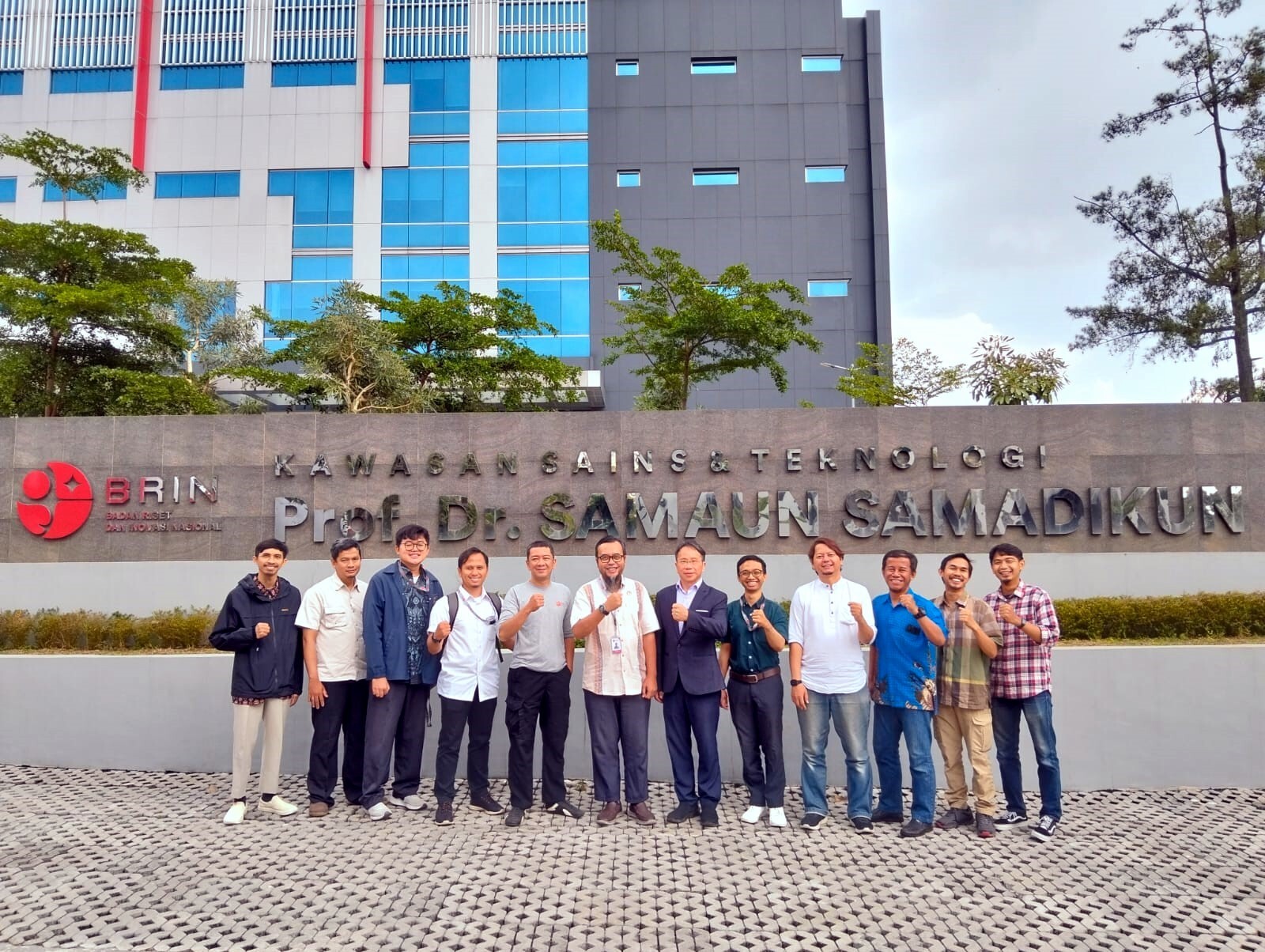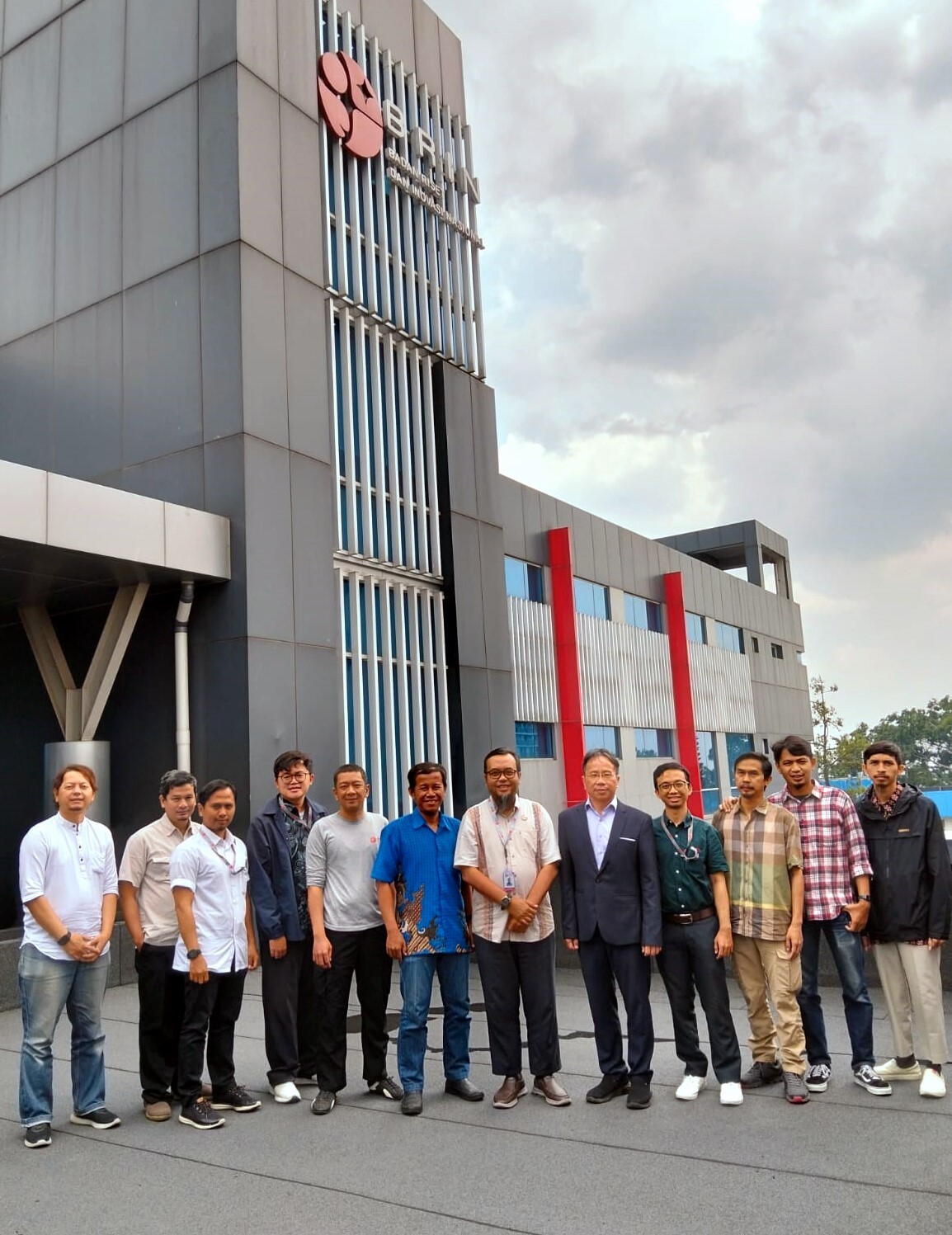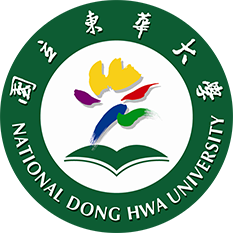Taiwan and Indonesia Collaborate to Advance Education Technology:AI and Edge Computing Transforming Learning Dynamics

The Department of Computer Science and Information Engineering, College of Science and Engineering at National Dong Hwa University(NDHU), in partnership with the National Research and Innovation Agency(BRIN)of Indonesia, equivalent to Taiwan's Academia Sinica, hosted a collaborative meeting with the Center for Data and Information Sciences(PRSDI)on October 27, 2024, at the BASICS Tower in Bandung, Indonesia. The meeting focused on innovations in data and information sciences, fostering research collaborations, and achieving several breakthrough outcomes. A key highlight of the event was the unveiling of the jointly developed "Xducation of Things(XoT)" framework. This innovative technology, combining artificial intelligence(AI)and edge computing, has revolutionized interactions and learning between humans and smart devices, paving the way for a new era in educational innovation.
The research outcomes of the XoT framework have been published in the prestigious journal IEEE Access. The study introduces the Smart Q&A(SQA)mechanism, which significantly enhances the intelligence of interactions between humans and smart devices. Through this framework, students have demonstrated remarkable improvements in learning outcomes, while smart devices rapidly expanded their knowledge bases, creating a dynamic and collaborative educational ecosystem. The framework was specifically tested in English as a Foreign Language(EFL)education, with results showing substantial improvements in students' essay quality, vocabulary usage, and writing fluency, clearly demonstrating its positive impact on language learning.

The meeting was led by Professor Wu-Yuin Hwang, Dean of the College of Science and Engineering at NDHU, and facilitated in-depth discussions on several critical topics. In the application of Digital Twins, Dr. Esa, Director of PRSDI, proposed strategies for integrating advanced sensors to improve the synchronization between virtual models and physical objects, enhancing both accuracy and robustness. The innovations in smart learning environments were elaborated by Dr. Satrio, who presented methods to utilize intelligent learning systems and analytics to drive educational advancements. Mr. Ridwan focused on smart cities and virtual reality(VR)applications, emphasizing the use of AI, fuzzy logic, and IoT to alleviate traffic congestion while enhancing immersive user experiences in geological learning. Additionally, Mr. Rakhman and Dr. Yudhi explored visualization techniques for disaster mitigation, including flood evacuation simulations using generative AI and Metaverse technologies, as well as 3D modeling for tsunami disaster scenarios. The discussions also compared disaster mitigation strategies between Indonesia and Taiwan.
On the academic publishing front, both sides plan to collaborate on a special issue in the internationally renowned Journal of Internet Technology(JIT), aiming to elevate the global visibility of their research contributions. Discussions on doctoral program collaboration included areas such as smart agriculture, disaster education, and interactive technologies. Concrete suggestions were made to support doctoral students in improving their literature analysis and academic communication skills during their research preparation stages.
This meeting marked a significant milestone in the collaboration between NDHU and PRSDI in the field of interactive technology. Both institutions are committed to furthering the application of the XoT framework, promoting the implementation of smart interactive technologies, language learning, and adaptive education platforms. Future research will expand into broader scenarios involving interactive technology and smart solutions. This collaboration not only brings substantial academic and technological advancements to both parties but also sets a new global benchmark for innovation in interactive education and smart technology development.



